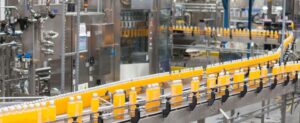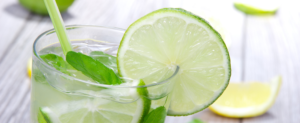Pilot Plant For Beverage Development
Where did your journey to beverage entrepreneurship begin?
If you’re like many of our clients, you probably began in your kitchen right at home, spending nights and weekends perfecting your recipe. Maybe you started having a little feeling that you’re onto something, something that might make it in the beverage market. But once you have an idea, what’s the next step?
If you’re on a budget and want to test an idea, the best way to do it is by engaging with a pilot plant. Pilot plants are a small-scale operation capable of mimicking a commercial beverage process. but in very small batches. You can’t sell the resulting product, but they can tell you a lot about what you should do next.
Here are three reasons why we recommend a pilot plant as the first step most entrepreneurs should take towards a marketable beverage.
Easily Determine Feasibility
Even if it worked in your kitchen, on your stove, or in your Vitamix, you might not have a commercially viable product. For example, many beverages are heat-treated to increase shelf life, and the time and temperature combinations used to achieve this shelf life can’t be mimicked on a stovetop.
Precisely controlling for temperature, among other things, is impossible to recreate in your kitchen. Interesting reactions can take place at these high temperatures and some ingredients are not suited to withstand these temperatures at all. That’s why it’s key to take your preliminary formulation to a pilot plant so you can understand if your product meets the criteria to enter the market.
Save Money
Using a pilot plant requires some initial costs, but it will save you money in the long run. A day at a pilot plant can run anywhere from $2,000-$7,500/day. Compare that to one day in a full commercial plant, which could cost anywhere from $10,000 -upwards of $50,000/day depending on the size and type of plant.
Additionally, finding time to run your trial in a plant will not be easy. Plants want to run as efficiently as possible and taking up line time to run a trial product that may fail will not be something a plant will want to do several times. Trials often get pushed out and put on hold if the plant needs the time to meet an unexpected order volume.
In contrast, a well-run pilot plant will have many dates available and will be better equipped to work with your schedule. By testing out your product at a pilot plant, you can make sure what you bring to a commercial production facility will work. This means you’ll need fewer plant trials, and that will free up more funds for other parts of your business.
Save Time
Most pilot plant equipment handles small batches, which helps you save money on ingredients and save time.
By comparison, batches in a production facility can take upwards of 6 hours to complete. Compare that with 20 minutes to 1 hour in a pilot plant depending on the number of ingredients and batching steps. In a well-maintained and well-managed pilot plant, you may get to test 6-8 different variations of your product in one day.
This rapid feedback will help you make quick decisions on the direction of your product. Spending just 2 days in a pilot plant can help your product progress through several iterations and be ready for a plant trial much faster than if every small change was made at the plant level.
Would you like more information on how we can help you with your beverage development project? Contact us today!







